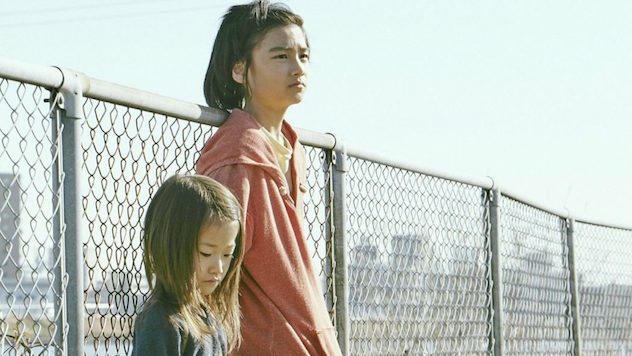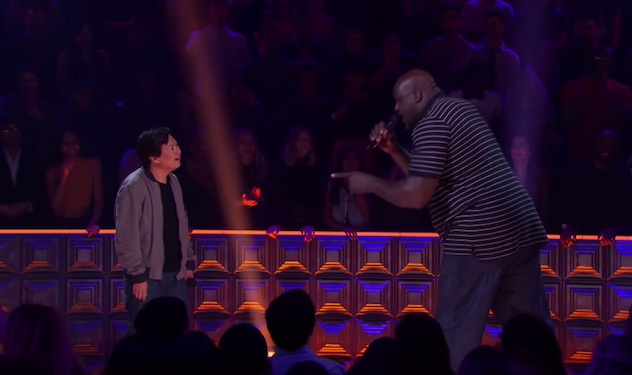Stationed in the luxe environs of the London Hotel in West Hollywood, California, Hirokazu Kore-eda’s deep in the throes of the press circuit for his new movie, “Shoplifters.” The vibe in his suite is so serious and businesslike, I feel like I stepped into Sofia Coppola’s 2003 movie “Lost in Translation.” The beloved auteur sits on a sofa pondering questions that are translated to him. His translator, a white woman with short white hair, communicates his answers carefully, capturing the indirectness and excruciating politeness of the Japanese language in her English answers. A man quietly turns the pages of a newspaper at a nearby table. And a woman sits on the edge of the bed observing.
His latest Japanese-language film portrays a ragtag family of sorts who commit petty crimes for survival. Central to the plot is their discovery of a neglected little girl whose appearance leads to grave legal problems for the family. “Shoplifters” won the prestigious Palme d’Or at the 2018 Cannes Film Festival and was this year’s highest-grossing domestic film in Japan.
When I ask Kore-eda about the inspiration for this blockbuster film, his answer works its way through the translator and over to me, like a game of telephone.
“When I look back, I think of when my daughter was born and that I was really, really busy with work,” he says. “I hardly had any time to spend with her at all. I started to wonder, is blood connection sufficient? And it became a really persistent issue with me. I was trying to understand if it was the amount of time that makes a family, or if it’s blood that makes a family. And as a sort of urgent need to resolve that, I worked through it by writing the script and then making the film ‘Like Father, Like Son.’”
In that 2014 film, an educated and well-heeled nuclear family realizes that their 6-year-old son was actually switched at birth with that of a working-class family. Heartache ensues. But long after the film wrapped, the question of blood versus love continued to nag at him.

(Courtesy of Magnolia Pictures)
“In Japanese society, blood ties are absolutely the most important thing,” explains Kore-eda. “They are emphasized, and I don’t think that will change. But for me it became important over time to look at also what it is to explore a family that is not tied by blood.”
Hence, “Shoplifters.” In the beginning, a poorly dressed “father” (Lily Franky) and a “son” (Jyo Kairi) are going through their oft-rehearsed choreography of shoplifting essentials from a supermarket. As they wander home through freezing-cold back streets, they notice a little girl (Sasaki Miyu) playing on an apartment veranda, while hearing fighting inside the house. The girl seems despondent and neglected. Their hearts are moved, and they allow her to follow them home, legal consequences be damned.
The scene at their house is far different. A rough-talking “grandmother” crudely clips her toenails at the dinner table. There’s also an “older sister” type who examines her face in the mirror and a “mother” who is shocked at the appearance of the 4-year-old girl who calls herself Yuri. The grandmother examines the little girl and finds scars on her arms.
As the movie gracefully unfurls, the viewer realizes that the relationships between the family members are absolutely nothing like what they seem. Instead of being connected by blood, these individuals have found each other through circumstance. And together they eke out a meager yet meaningful existence.
After I saw the movie and talked to Kore-eda, I couldn’t stop pondering the ways in which humans define our tribes, whether it be through the kinship of DNA or the shared values of culture. Without a doubt, genes play a huge role in the way people turn out, but what role does love play? How many of us forge bonds with people who aren’t from the same race, or even the same race but with whom we connect through common experiences and values? Perhaps Kore-eda’s white Japanese-speaking translator can understand him infinitely better than I can, despite our shared Asiatic features. Perhaps, not. In this era of debate around immigration and otherness, considering these bonds is especially prescient.
This article appears in Kore’s upcoming December 2018 issue. Subscribe here.







